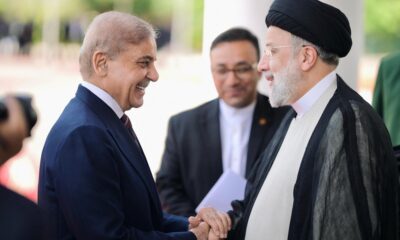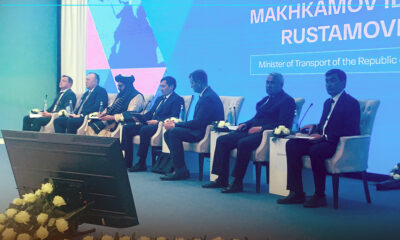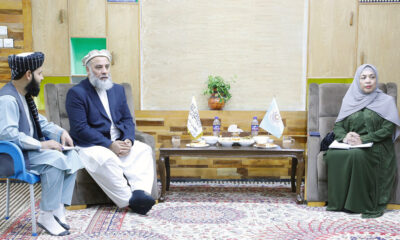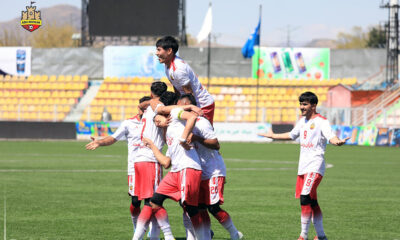Latest News
Barchi residents look back on maternity ward attack, appeal to MSF to return
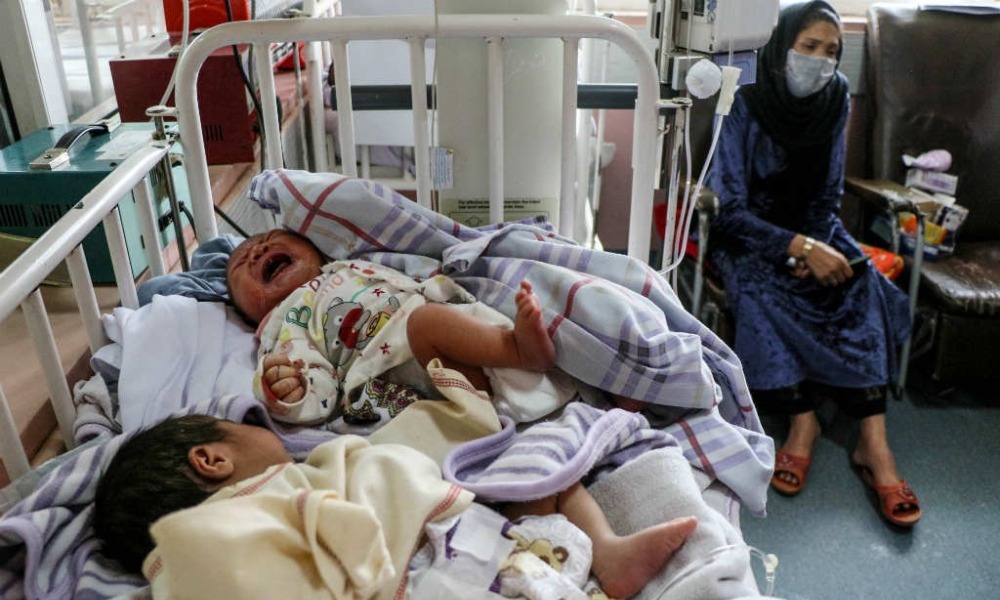
It has been a year since the deadly attack on the maternity ward in a Dasht-e Barchi hospital in Kabul, a year filled with memories of the horror of the attack where gunmen cold-bloodedly gunned down mothers and mothers-to-be, staff and children in a four-hour siege.
But for the people of Dasht-e-Barchi, the attack at the Médecins Sans Frontières (MSF) run maternity ward, and the 24 people killed, including mothers and mothers-to-be, will never be forgotten.
For some local residents, MSF’s decision soon after the attack to withdraw from the hospital left them “shocked and hopeless”.
On Tuesday, Dr Isabelle Defourny, MSF director of operations, said: “Some weeks later, we had to make the difficult choice to withdraw from Dasht-e-Barchi. We knew we would leave behind huge needs.
“For many women in the neighbourhood, our maternity ward was a much-needed resource; 16,000 deliveries had taken place there in 2019 alone. But we couldn’t continue our activity after what happened,” Defourny said.
Thanking MSF for their services at the hospital over the years, one resident in the area, Ahmad Tamim, said on Wednesday: “People will never forget MSF ‘s generous service in its Dasht-e Barchi project and as well the tragic closure of the hospital that left everyone shocked, helpless and hopeless.
“All the people wished you would have continued your assistance in their slum and ghetto area after the attack, but unfortunately your abandonment became another sorrow for them,” he said.
For one MSF employee, Sayed Jawed Hashimi, who hid in a safe room during the attack, the scenes will haunt him for years to come.
“The worst memory ever! And the hardest four hours that we spent in the safe room, under shooting, bombing, and the dead bodies (mothers, babies, care takers, our colleague). What we saw after getting out of safe rooms, was like a nightmare, which takes several years to forget,” he told Ariana News.
Another resident of the area Omulbanin Nabizada, said simply to MSF: “Wish you could stay.”
Yet another appealed to them to resume work in their predominantly Shiite Hazara area.
Mystafa Asghari said: “Please resume your activities.”
Asila Mohammad said to Ariana News: “MSF should resume work in Kabul [in Dasht-e-Barchi] in order to save more mothers and children,” while Asadullah Azimi said: “We were victims and we were deprived of your cooperation for a crime others committed.”
Sakina Amiry, an Afghan journalist, stated: “After the terrorist attack the people have been in desperate need of health services. The hundred-bed hospital [which housed MSF’s maternity ward] now limits services,” she said.
“The maternity ward now only handles normal deliveries. MSF doctors please help those who even do not have bread to eat,” she said.
The maternity ward attack was carried out in the same area that was battered on Saturday in a deadly bombing against a girls school that killed at least 87 people, mostly teenage girls.
But, like many attacks, no group has claimed responsibility for this tragedy.
AFP reported Wednesday that few people in the area expect authorities to track down the perpetrators of the latest carnage — or prevent similar massacres in the future.
The Afghan government has continued to blame the Taliban for the maternity ward attack, but interior ministry spokesman Tareq Arian says no arrests were ever made.
The US, however, pinned the blame on the Islamic State group (Daesh).
“No evidence was publicly brought to support those claims,” Defourny told AFP.
In a statement issued on Tuesday, Defourny said that while they didn’t think the MSF was specifically targeted, “the first targets of this attack were pregnant women and women in labour in a maternity ward which we ran.”
“We know that the attackers directly headed to the maternity ward and killed the pregnant women and women in labour who were present there. Two children who had come for routine vaccination and another caretaker were also shot dead in the attack. Healthcare staff were also killed and injured,” she said.
“We can’t work in an environment where patients and medical staff are targeted, and where we can’t prevent such a massacre from happening again.
“This attack clearly targeted pregnant women in a maternity ward run by MSF. And the fact-finding exercise confirmed that none of the different parties with whom we have relations in Afghanistan gave us specific alerts on it.
“Our will to continue working in Afghanistan is motivated by the dire medical needs of the Afghan people… but can only continue if minimum conditions of safety are ensured…,” she said.
“When MSF returned to Afghanistan 12 years ago – after we had withdrawn in 2004 following the killing of five of our colleagues – we knew it was one of the most dangerous countries to work in. At that time, our analysis was that it was possible to craft a safe working space for us, by renewing our engagement with all the different parties involved.
“Since then, after the attack on our hospital in Kunduz, and the one on the Dasht-e-Barchi maternity ward, we have to admit that this wasn’t enough. In these two attacks, 66 people were killed – by far the highest number of deaths in our programmes around the world over the last six years.
“Our organisation can’t accept the idea of integrating the loss of our staff or of the patients we treat as part of our work. We maintain our freedom to withdraw and stop our activities when we think that the risk of such severe attacks repeating themselves is too great,” she said.
Latest News
Iran, Pakistan leaders raise concerns over ‘terrorist groups’ in Afghanistan

Following a two-day official visit to Pakistan, Iranian President Ebrahim Raisi and Pakistan’s Prime Minister Shehbaz Sharif issued a joint statement emphasizing the need to further expand commercial and economic cooperation and transform the common border of the two countries from a “border of peace” to “border of prosperity”.
The two leaders also strongly condemned aggressions and crimes of Israel in Gaza, and demanded an immediate and unconditional ceasefire, as well as unimpeded humanitarian access to the besieged people of Gaza.
Numerous other issues were also discussed but on the topic of Afghanistan, they jointly declared their commitment to the development of Afghanistan as a peaceful, united, independent country free from the threats of terrorism and drug trafficking.
According to the statement the two countries pointed out that the existence of terrorist organizations in Afghanistan is a serious threat to the security of the region and the world.
The two sides stressed their desire to strengthen cooperation in the field of fighting terrorism and ensuring security and creating a united front against terrorism.
They also discussed the importance of coordinating regional and international efforts to ensure security and stability in the region.
“While respecting the sovereignty and territorial integrity of Afghanistan, the two sides recognized that increasing participation of all strata of Afghans in basic decision-making will lead to the strengthening of peace and stability in this country,” the statement read.
Latest News
Over 1,000 Afghan refugees forced out of Pakistan in one day

The Ministry of Refugees and Repatriations (MoRR) says over 1,000 Afghan migrants were forcibly returned from Pakistan on Tuesday through Spin Boldak border crossing in Kandahar province, the ministry said in a statement.
The ministry stated that based on information provided by the Spin Boldak Kandahar border command, these returnees comprised 191 families, totalling 998 people.
In addition, three migrants released from Pakistani prisons were also returned, according to the statement.
The statement added that after registering the returnees, the refugees were referred to the offices of the International Organization for Migration (IOM), the World Food Program (WFP) and the United Nations High Commissioner for Refugees (UNHCR).
Each family received 10,000 afghanis – paid to them by the Islamic Emirate.
In another statement, the ministry said that 2,783 migrants living in Iran voluntarily and forcibly returned to the country during this week.
Latest News
Afghanistan’s minister of transport and aviation attends regional meeting in Uzbekistan

Hamidullah Akhundzadeh, acting Minister of Transport and Aviation, headed a delegation to Uzbekistan for a ‘Six-Party Corridor’ meeting that included representatives from Afghanistan, Russia, Belarus, Pakistan, Kazakhstan and Uzbekistan.
On the sidelines of this meeting the Afghanistan delegation discussed trade through the corridor with the other five relevant countries.
According to the ministry of transport and aviation, Akhundzadeh met with the deputy ministers of transport of Russia and Belarus.
He also discussed ways to expand transit between Afghanistan and Russia; and Afghanistan and Belarus, and provide the necessary facilities to achieve this.
The ministry added that the acting minister had a bilateral meeting with the Minister of Transport and the Special Representative of the President of Uzbekistan on Afghanistan and discussed the expansion of road transport between the two countries.
-

 Sport5 days ago
Sport5 days agoAfghanistan Champions League kicks off with grand opening ceremony
-

 Regional5 days ago
Regional5 days agoIran’s foreign minister downplays drone attack, says Tehran investigating
-

 Latest News4 days ago
Latest News4 days agoPakistan’s frontiers minister stresses ‘dignified’ return of Afghan refugees
-

 Business5 days ago
Business5 days agoAfghanistan’s economic prospects are bleak: World Bank
-

 Latest News5 days ago
Latest News5 days agoMore than 800 Afghan refugees deported from Pakistan in two days
-

 Regional3 days ago
Regional3 days agoIranian president lands in Pakistan for three-day visit to mend ties
-

 Climate Change4 days ago
Climate Change4 days agoMassive river flooding expected in China, threatening millions
-

 Latest News4 days ago
Latest News4 days agoChinese keen to invest in Panjshir-Kabul water conduit project


